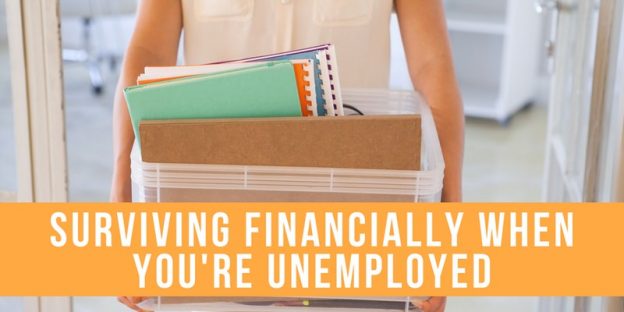Marriage is an important step in anyone’s life and brings many challenges with it. One of those challenges is the management of your finances as a couple.
The money decisions that you make now as a couple can have a lasting impact on your financial future together. Careful planning of your finances can ensure that together, you achieve financial success.
1. Budgeting your money
► In general
When you were single, you managed your finances in a way that was comfortable for you and that you understood–no one had to approve or disapprove of your financial decisions.
Now that you are married, however, both you and your spouse have to agree on a system for budgeting your money and paying your bills.
► Discuss financial situations
You and your spouse must discuss your respective financial situations and expectations, and take stock of your individual assets (what you own) and liabilities (what you owe).
Revealing your financial situation is an important step when budgeting as a couple. If either of you has a financial problem, it is best to identify it now and begin solving it together.
This is the time to address questions such as what do each of you earn, and what additional sources of income do you have? What do you own? Will both of you work now that you are married?
Who will hold title to property acquired before and after the wedding? In addition, be sure to disclose all of your financial commitments. If you pay child support, let your partner know the amounts. If you have to repay student loans, discuss that as well.
► Discuss financial goals
After you discuss your financial situations, you should discuss your financial goals. You can start by each making a list of your short- and long-term financial goals.
Short-term goals are those that can take anywhere from three to five years (e.g., saving for a down payment on a home or a new car). Long-term goals are those that take more than five years to achieve (e.g., saving for a child’s college education or retirement).
When you have each determined your individual financial goals, you should review your goals together to achieve common objectives.
You can then focus your energy on those common objectives and strive to attain those goals (short- and long-term) together.
► Decide on the type of bank account(s) you will keep
Decide whether you and your spouse will have separate bank accounts or a joint account.
Advantages to consolidating your checking funds into one account include easier record-keeping, reduced maintenance fees, less paperwork when you apply for a loan, and simplified money management.
If you do choose to keep separate accounts, consider opening a joint checking account for household expenses.
Caution: When sharing a checking account, be sure to keep track of how much money is in the account at all times since both of you will be writing checks that draw from the same account.
► Prepare an annual budget
The first step in developing a financial future together as a couple is to prepare an annual budget.
The budget will be a detailed listing of all your income and expenses over the period of a year.
You may want to designate one spouse to be in charge of managing the budget, or you can take turns keeping records and paying bills.
Tip: Make sure that you develop a record-keeping system that both you and your spouse understand. Also, keep your records in a joint filing system so that you can easily locate important documents.
- Begin with your sources of income–list salaries and wages, alimony and child support, interest, and any other form of income that you and your spouse may have.
- List your expenses. It may be helpful to review several months’ worth of entries in each of your checkbooks to be sure that you include everything. Put all the expenses that are paid monthly into one category, and put all other expenses (every other month, quarterly, semiannually, annually) into another. Some common expenses are:
- Savings
- Rent or mortgage payments
- Student loan payments
- Groceries
- Pet care
- Utilities
- Car payments
- Credit card payments
- Alimony/child support
- Household items
- Personal care/grooming
- Major purchases
- Insurance
- Car repairs
- Clothing
- Tax payments
- Medical expenses
- Gifts
- Automobile gas
- Child day care
- Entertainment/dining out
- Estimate your expenses for each category. How much money do you spend on these items on a monthly basis and on an annual basis? Try to come up with a realistic amount for what you think you will spend in a year’s time. Add another category to the irregular expenses list, and call it Contingencies. This can be a catchall category for expenses that you might not anticipate or budget for. The amount to budget for contingencies should be about 5 percent of your total budget.
- Add your sources of cash and uses of cash on an annual basis. Hopefully, you get a positive number, meaning that you are spending less than you are earning. If not, review your expense list to determine where you can cut your spending. Consider using computer spreadsheets or programs like Quicken for assistance.
► Create a cash flow system
After you have developed a budget, you should create a system for managing your monthly inflow and outflow of cash.
It is a good idea for both you and your spouse to become involved in this process–at least at first–so that both of you have a clear understanding of the costs of running the family and household.
Cash flow systems like the one described below are simple and painless to operate.
Once they are established, you will find that making financial decisions becomes much easier because you have done your homework.
- Separate your regular monthly expenses from irregular expenses (every other month, quarterly, semiannually, annually) by using a different bank account for each. Otherwise, you may be tempted to use money that has been earmarked for something else. You should limit the number of checking accounts that you have in order to avoid confusion.
- Each time you get paid, deposit some money into an account for irregular expenses. The amount of money you deposit should be equal to the total amount needed for the irregular expenses, divided by the number of paychecks you each receive annually. In so doing, you will have the money for the outlay when it arises. The rest of your pay should go into your checking account, to be used for regular monthly expenses and savings.
- One variation to this system of cash flow management is to establish one or two additional bank accounts for one or both of you for personal spending money. Allocate the budgeted amount for personal expenses (e.g., lunches, haircuts, gifts) to this account. This way, you are free to spend the money in this account in any way you like without having to worry about meeting regular monthly expenses. However, all of these bank accounts may have fees.
2. Saving and investing your money
► In general
At some point in your married life, you will almost certainly encounter some large expenditures, such as a new home, your own business, or a college education for your children.
Chances are, you won’t be able to meet these expenditures from your current income. You and your spouse must discipline yourselves to set aside a portion of your current income for saving and investing your money to ensure its steady growth or, at the very least, protect it against loss.
► Save a percentage of your earnings
When figuring out your budget, savings should be considered one of your monthly expenses. Think of savings as a fixed payment (like a car payment) that must be made every month.
If you don’t and you wait until the end of the month to save whatever you have not spent, you’ll find that nothing ever seems to go into your savings account.
A good rule of thumb is for you and your spouse to save 4 to 9 percent of your combined gross earnings while you are in your 20s and then double that savings percentage as you reach your 30s and 40s.
In some cases, a dual-income couple may be able to live off one spouse’s salary and save the other salary.
Example(s): Mary and Richard, a married couple in their 20s, earn a combined annual gross income of $60,000. Together, Mary and Richard save 5 percent of their combined gross income each year, or $3,000.
Example(s): As another example, Christine and Tom, a married couple in their 30s, earn a combined annual gross income of $80,000. Together, Christine and Tom save 10 percent of their combined gross income each year, or $8,000.
► Build an emergency cash reserve
The savings that you accumulate can serve as an emergency cash reserve. Ideally, you should have in savings an amount that is comfortable for you to fall back on in case of an emergency, such as a job loss.
A common formula used for calculating a safe emergency fund amount is to multiply your total monthly expenses by 6. When determining how much cash should be in your emergency fund, a major factor is your comfort level.
If you and your spouse feel secure with your jobs and are confident that if you lost your current jobs you would be able to find a new one fairly quickly, an emergency fund of three times your monthly expenses should be sufficient.
However, if either of you has an unpredictable income, you may want to have an emergency fund that is equal to 12 times your monthly expenses.
Example(s): Christine and Tom, a married couple in their 30s, plan to build up an emergency cash reserve. Both Christine and Tom are attorneys and feel quite secure with their present jobs. Christine and Tom have monthly expenses of $3,000 and plan to build up an emergency cash reserve that is equal to 3 times their monthly expenses, or $9,000 ($3,000 x 3).
Example(s): As another example, Mary and Richard, a married couple in their 20s, plan to build up an emergency cash reserve. Both Mary and Richard are employed as freelance writers and feel that their incomes are at times unpredictable. Mary and Richard have monthly expenses of $1,500 and plan to build up an emergency cash reserve that is equal to 12 times their monthly expenses, or $18,000 ($1,500 x 12).
► Investing your money
When you have established an emergency cash reserve, you can begin to invest your money to target your financial goals.
There are three fundamental types of investments: cash and cash alternatives, bonds, and equities. Cash and cash alternatives are relatively low-risk investments that can be readily converted into currency, such as money market accounts.
Bonds, sometimes called debt instruments, are essentially IOUs; when you invest in a bond, you’re lending money to the bond’s issuer–usually a corporation or governmental body–which pays interest on that loan.
Because bonds make regular payments of interest, they are also known as income investments. Equities, or stocks, give you a share of ownership in a company.
You have the opportunity to share in the company’s profits and potential growth, which is why they’re often viewed as growth investments. However, equities involve greater risk than either cash or income investments.
With equities, there is no guarantee you will receive any income or that your shares will ever increase in value, and you can lose your entire investment.
In addition to these three basic types of investments–also known as asset classes–there are so-called alternative investments, such as real estate, commodities, and precious metals.
No matter what your investment goal, your overall objective is to maximize returns without taking on more risk than you can bear.
You’ll need to choose investments that are consistent with your financial goals and time horizon.
A financial professional can help you construct an investment portfolio that takes these factors into account.
Click here to get more information from our affiliate company PLJ Advisors.
3. Establishing good credit
► In general
Establishing good credit is an important step in the path towards a solid financial future. A good credit history can enable you to make credit purchases for items that you might not otherwise be able to afford.
Most creditors will require a good credit history before extending credit to you. If you do not have a credit history, it is important to establish one as soon as possible. If you have a poor credit history, you should take steps toward improving it right away.
► Individual or joint credit
Married couples can either apply for credit individually or jointly. One of the benefits of applying for joint credit is that both you and your spouse’s income, expenses, and financial stability are considered when a creditor evaluates your overall financial picture.
However, applying for separate credit has its advantages. If you and your spouse ever run into financial problems (e.g., illness or job layoff), separate credit allows one spouse to risk damaging his or her credit history while preserving the other spouse’s good credit.
In addition, separate credit can also protect you and your spouse from each other. If you and your spouse cosign a loan or apply for a credit card, you are both responsible for 100 percent repayment of the debt.
In other words, if your spouse does not pay his or her share, you can get stuck with paying the whole amount. On the other hand, if your spouse takes out a loan or applies for a credit card on his or her own, generally your spouse is solely responsible for the debt.
Tip: While the general rule is that spouses are not responsible for each other’s debts, there are exceptions.
Many states will hold both spouses responsible for a debt incurred by one spouse if the debt constituted a family expense (e.g., child care or groceries).
In addition, in some community property states, both spouses may be responsible for one spouse’s debts, since both spouses have equal rights to each other’s incomes.
You may want to discuss your state’s laws with an attorney if you live in a community property state.







 America Is Hooked On Credit
America Is Hooked On Credit



